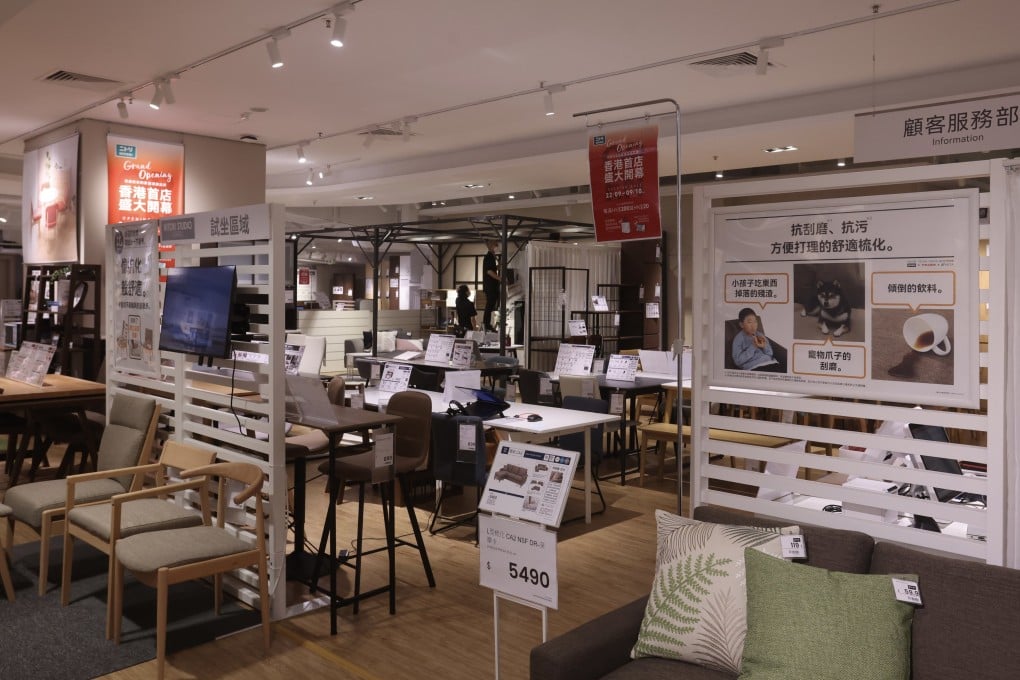Advertisement
Japan’s Nitori opens first Hong Kong store, joins slew of Asian retailers expanding in the city as Western brands retreat
- Nitori’s flagship store in MegaBox, Kowloon Bay, is spread over 20,000 sq ft and features 5,500 items
- Asian retailers are increasingly occupying prime space in Hong Kong vacated by Western brands following nearly four years of tumult
Reading Time:3 minutes
Why you can trust SCMP
0

Japanese furniture and home accessories retailer Nitori Holdings, which opened its first outlet in Hong Kong on Wednesday, plans to gradually expand its footprint to 20 across the city in the coming years, a top executive said.
The company’s flagship store in MegaBox, Kowloon Bay, is spread over 20,000 sq ft and features 5,500 items, about 40 per cent of the products the retailer offers in Japan.
Nitori is the latest Asian brand to foray into Hong Kong and it comes amid an exodus of Western brands following nearly four challenging years that began in mid-2019 with the outbreak of an unprecedented social unrest and immediately followed by the coronavirus pandemic.
“There’s a potential to open 20 stores in Hong Kong in the future,” said Nitori’s president and representative director Masanori Takeda, without specifying a time frame.

Asian retailers are increasingly occupying prime space in Hong Kong vacated by Western brands following years of tumult that pushed the city’s economy into a recession. The outlook for retailers has improved as tourist numbers swell following the city’s reopening after the pandemic.
Advertisement